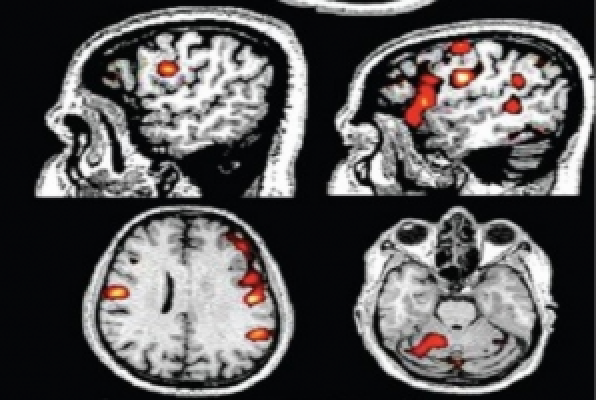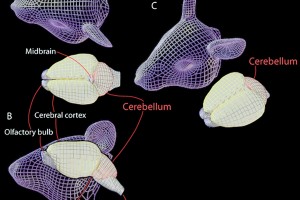Novel fMRI applications in childhood epilepsy increase understanding of seizure impacts
fMRI has allowed researchers to map the memory functions that are often impaired within the brains of children with epilepsy.
fMRI has allowed researchers to map the memory functions that are often impaired within the brains of children with epilepsy. Additionally, a separate study of a novel application of resting-state fMRI, where the patient does not have to complete tasks, demonstrated the potential for clinicians to use non-invasive fMRI for language assessment for children who are too young or impaired to follow task directions in traditional fMRI studies.
fMRI tool tracks verbal and visual memory in children with epilepsy
The first study, which developed a new fMRI task/activity designed to track verbal and visual memory, is one of only a few pediatric memory studies using fMRI in children with epilepsy.
"Non-invasive fMRI is a powerful tool and an excellent alternative to more invasive testing to measure language and memory," says William D. Gaillard, M.D . "This study allowed us to elicit hippocampal and parahippocampal activation in children with epilepsy and compare the findings with controls to demonstrate that fMRI may be used effectively to track memory and recall ability in children with epilepsy."
The study included twenty-one children with focal epilepsy and 17 controls to assess how well a new paired association learning fMRI task captured the verbal and visual memory activities of the hippocampus and the parahippocampal regions of the brain—which are known to play significant roles in verbal and visual memory.
Though a small sample, the results suggest that fMRI memory tasks such as the one tested can be used to produce findings that are sensitive to the hippocampal activity differences in children, which may lead to an important clinical tool for presurgical planning.
Mapping language skills using resting state fMRI before epilepsy surgery
A second study demonstrated the ability of functional connectivity analysis within a resting-state fMRI to assess language laterality, meaning to help determine the dominant side of the brain controlling language, when compared with the current standard of a language-task fMRI measure.
"Mapping language prior to epilepsy surgery is vital to evaluating the risks of postoperative deficits in children," says Dr. Gaillard. "But asking a very young or intellectually impaired child to complete the tasks necessary for reliable mapping using standard fMRI practices is limited by the child's ability to comply with the demands of a task."
Unlike traditional fMRI where a subject performs a series of validated tasks to "light up" or activate the target regions of the brain, resting-state fMRI captures regional brain activity without the additional stimulus of a task to complete. The data-driven method of identifying language laterality through functional connectivity analysis was developed previously at Children's National and applied in this setting to test its ability to map the dominant regions of the brain controlling language.
The study found that when compared with typical language assessment tasks, resting state fMRI functional connectivity analysis matched the results of the task activity findings slightly more than two thirds of the time. While more research is needed, the study succeeded in demonstrating the potential of data-driven methods to establish reliable language laterality even without a task-based fMRI.
"Our hope is that one day we may be able to expand the use of clinical fMRI as an effective, noninvasive tool for language mapping prior to epilepsy surgery by eliminating task completion as a requirement for success," says Madison Berl, PhD.
Medicalexpress.com





Related Posts